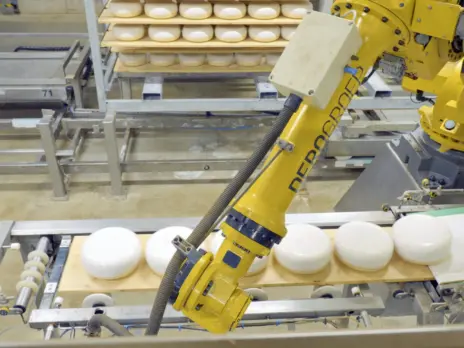AI tools and automation could contribute £400bn to the UK economy by the start of the next decade. That is the prediction of the UK tech vendor trade body techUK in a new report, which says this will come primarily from boosts to productivity. However, AI success depends on regulatory clarity from the government, the report warns.

TechUK’s report, entitled Making AI Work for Britain, says that as a result of the transformative power of AI, the workplace of tomorrow will be very different to that of today, arguing there is a need to prepare for the “challenges and opportunities of the AI-powered era”. The authors set nine steps to achieve that goal and ensure the country is ready.
The UK is already a leader in AI with many of the top labs having a base or office in the country including Google’s DeepMind, Anthropic and ChatGPT-maker OpenAI. The country is also trying to cement its position as a leader in legislation through the upcoming Bletchley AI Safety Summit in November.
Generative AI, such as the technology behind ChatGPT and image-generation tool Midjourney, will trigger much of the projected growth, techUK suggests. Saving the average worker 100 hours per year by automating many repetitive tasks. It isn’t clear what impact this will have on jobs generally. Still, while some predictions suggest many jobs could be lost as a result of automation, others believe artificial intelligence will have a positive impact on employment.
A study by the UN-backed International Labour Organisation (ILO) published in August found that tools like ChatGPT had a greater chance of augmenting existing roles by automation than eliminating vocations entirely. That is if policymakers put appropriate protections in place to counter the negatives. “Our study should not read as a calming voice, but rather as a call for harnessing policy to address the technological changes that are upon us,” it read.
TechUK’s report says that historically new technology and innovations have led to new opportunities and growth in the workforce. Over the past 80 years, more than 85% of employment growth can be attributed to technology and innovation, it says, and AI is unlikely to be any different. This will in part be due to the ability of AI to supplement the decline in the working-age population.
Need to prepare for the AI-powered transition
Like the ILO, techUK says it will come down to how well the government performs in preparing the workforce for the changes ahead. This includes following a series of nine steps covering legislation, investment and support for small businesses. The first step is to ensure there is clear guidance in place on how existing laws apply to AI at work including data protection as well as health and safety legislation. There also needs to be an investment in training through incentives and a reform of the apprenticeship levy.
Taking training further, techUK has also urged the creation of a digital skills toolkit, an accreditation framework for modular courses and an industry placement scheme for prospective employees wanting to understand the value of AI. On top of this, there needs to be support for SMEs to adopt AI and legislation providing a right to request flexible and remote working from day one.
Content from our partners

A hybrid strategy will help distributors execute a successful customer experience

Amalthea leverages AI and automation to improve yield while minimising waste and costs

How AI is unlocking valuable opportunities in the insurance industry
The next step is around changes in the labour market, specifically ensuring mechanisms are in place to predict and forecast the impact AI will have through a new independent commission on automation and emerging technologies.
View all newsletters Sign up to our newsletters Data, insights and analysis delivered to you By The Tech Monitor team
Promoting lifelong learning through a new flexible entitlement scheme to allow people to reskill later in life, as well as extending maintenance loans to distance learners are also on the list of essentials to reflect the change in workforce behaviour amid growing automation.
Outside of education, there is also a need for a collaborative regulatory environment to make it easier for stakeholders to address AI-related issues and greater support for local authorities as it addresses job losses and business change.
Antony Walker, deputy CEO of techUK, said this was the dawn of a new era. “A new generation of AI-enabled digital tools is rapidly emerging, with the ability to undertake tasks that could previously only be done by people,” he said. “These new tools will ultimately be applied across the economy, impacting all aspects of employment.”
“To deliver on the promise of AI, governments will need to build on existing efforts to improve digital skills and accelerate digital adoption by businesses,” Walker added.
Read more: AI without regulation puts workers at risk – TUC
Topics in this article : AI , techUK
